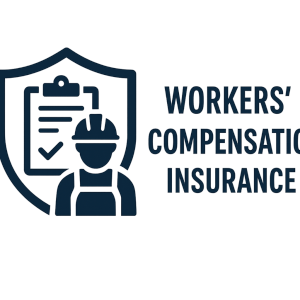
Adult Day Care Center Workers’ Comp Quote Checklist for Faster Binding
September 1, 2025
Workers’ Comp Requirements for Temp Agencies
September 2, 2025In the dynamic landscape of workforce management, temporary staffing agencies play a pivotal role in connecting businesses with flexible labor solutions. Though, navigating the regulatory framework surrounding workers’ compensation is crucial for these agencies to ensure compliance and mitigate risk. This article provides a extensive overview of GeorgiaS workers’ compensation requirements specific to temp staffing agencies,highlighting key obligations,best practices,and strategies to maintain legal and operational integrity in this specialized sector.
Table of Contents
- GA Workers Comp Coverage Obligations for Temporary Staffing Agencies
- Assessing Risk Factors and premium Calculation Methods
- Best Practices for Compliance and reporting Procedures
- Strategies for Minimizing Workers Comp Costs and Enhancing Safety Protocols
- Q&A
- insights and Conclusions
GA Workers Comp Coverage Obligations for Temporary Staffing Agencies
Temporary staffing agencies operating in Georgia must understand their workers’ compensation obligations to ensure compliance and protect both their business and employees. Under Georgia law, these agencies are required to secure workers’ compensation insurance coverage for all temporary workers they place, nonetheless of the client company’s insurance status. This means that even if the client company carries workers’ comp insurance, the staffing agency remains the primary carrier responsible for any claims arising from work-related injuries involving temporary staff members.
To maintain compliance, agencies should consider the following key obligations:
- Obtain a valid workers’ comp policy that explicitly covers temporary or contract workers.
- Clearly communicate coverage details to both temporary workers and client companies.
- Report all workplace injuries and ensure proper claim handling in a timely manner.
- Maintain accurate employee records to demonstrate coverage and employment status during audits or disputes.
| Obligation | Agency Responsibility | Potential Outcome |
|---|---|---|
| Insurance Coverage | Maintain active policy for temps | Fines, legal liability |
| Injury Reporting | Report within 3 business days | Claim denial, penalties |
| Record Keeping | Accurate payroll & employment records | Audit failures, increased premiums |
Assessing Risk Factors and Premium Calculation Methods
When calculating workers’ compensation premiums for temporary staffing agencies in Georgia, insurers assess a variety of risk factors inherent to the nature of temporary placements. These factors often include the specific industries temp workers are assigned to, the level of physical risk involved in job duties, and the payroll classifications of employees. Agencies with higher exposure to hazardous environments or specialized workforces typically face increased premiums. Additionally, claims history and the agency’s loss prevention strategies play pivotal roles in determining the cost of coverage, emphasizing the importance of effective safety programs in mitigating risks and lowering premiums.
Key considerations influencing premium calculations:
- Classification of employees based on job duties and associated risk levels
- Ancient claims and frequency of workplace injuries within the agency
- Overall payroll amount subject to workers’ comp insurance
- Agency’s implementation of safety and training protocols
- State-specific regulatory compliance and legal environment
| Risk Factor | Impact on Premium |
|---|---|
| High-Risk Job Classifications | increases premiums by 20-40% |
| Low Claims History | May reduce premiums by up to 15% |
| Large Payroll Volume | Increases total premium but may lower rate per $100 of payroll |
| Robust Safety Programs | Potential discounts of 5-10% |
Best Practices for Compliance and Reporting Procedures
Maintaining strict adherence to Georgia’s workers’ compensation requirements demands a systematic approach. Staffing agencies should implement robust internal audits and regular training sessions to keep teams updated on evolving regulations. Key elements to focus on include:
- Timely filing of incident reports within mandated timeframes
- Accurate documentation of employee roles and injury details
- Clear communication channels between clients,temporary workers,and insurance providers
- Consistent updating of insurance certificates and policy renewals
Using technology solutions can greatly streamline compliance monitoring. Digital reporting tools with automated alerts ensure no deadlines are missed and foster clarity throughout the claims process. Below is a sample reporting timeline optimized for Georgia temp staffing agencies:
| Event | timeframe | Responsible Party |
|---|---|---|
| Initial injury Report | within 24 hours | temp Agency |
| Medical Evaluation | Within 3 days | Assigned Physician |
| Claim Submission | Within 7 days | Insurance Carrier |
| follow-up Status Update | Bi-weekly | Agency Compliance Team |
Strategies for Minimizing Workers Comp Costs and Enhancing Safety Protocols
implementing rigorous safety training programs tailored to the unique environments temp staffing employees encounter is essential. Agencies should invest in comprehensive onboarding sessions that emphasize hazard recognition, proper equipment use, and emergency response protocols. Moreover, regular safety audits and refresher courses help maintain awareness and reduce injury risks. Collaborating closely with client companies to ensure consistent safety standards and prompt reporting of incidents further streamlines risk management efforts.
Cost-effective strategies include deploying data-driven risk assessments and leveraging technology such as wearable safety devices to monitor real-time employee health metrics. Establishing clear communication channels and fostering a proactive safety culture encourages workers to report near misses without fear of reprisal, allowing for early intervention. The table below summarizes key components for minimizing workers’ compensation expenses while enhancing workplace safety:
| strategy | Benefit | Implementation Tips |
|---|---|---|
| Customized Safety Training | Reduces injury occurrences | Use interactive modules and scenario-based learning |
| Proactive Incident Reporting | Early risk mitigation | Incentivize transparency and quick reporting |
| Technology Integration | Real-time hazard monitoring | Adopt wearables and safety apps |
| Regular Safety audits | Identifies systemic risks | Schedule quarterly inspections and feedback sessions |
Q&A
Q&A: GA Workers’ Comp Requirements-Temp Staffing Agencies
Q1: What are the basic workers’ compensation requirements for temp staffing agencies operating in Georgia?
A1: In Georgia, temp staffing agencies are required by law to carry workers’ compensation insurance for all of their employees, including temporary workers assigned to client businesses. This requirement ensures that temp workers have coverage in case of work-related injuries or illnesses, protecting both the worker and the agency from liability.
Q2: Are client companies responsible for providing workers’ comp coverage for temporary employees placed by staffing agencies?
A2: Generally, no. In most cases, the temp staffing agency is considered the employer of record and is responsible for providing workers’ compensation coverage. However,in some instances,if the client company has its own workers’ comp policy and both parties agree,the client may assume coverage responsibilities.Such arrangements should be clearly documented in the contract.Q3: How does Georgia law determine the employer of a temporary worker for workers’ compensation purposes?
A3: Georgia law typically designates the temp staffing agency as the employer because the agency hires, pays, and controls the employment conditions of the temporary worker. This classification is crucial since it establishes which party must provide workers’ compensation coverage.
Q4: What are the penalties for temp staffing agencies that fail to comply with Georgia’s workers’ compensation laws?
A4: Noncompliance can result in notable penalties,including fines imposed by the Georgia State Board of Workers’ Compensation. Additionally,agencies may face civil liability if workers are injured and lack proper coverage,leading to costly legal disputes and reputational damage.
Q5: Are there any exceptions or exemptions to workers’ compensation requirements for temp staffing agencies in Georgia?
A5: While most temp staffing agencies must provide workers’ comp coverage, exceptions are limited. Certain small employers with fewer than three employees may be exempt, but this rarely applies to staffing agencies due to the nature of their operations. It’s advisable to consult legal counsel to understand any potential exemptions.
Q6: What best practices should temp staffing agencies follow to ensure compliance with Georgia workers’ compensation laws?
A6: Agencies should:
- Obtain and maintain a valid workers’ compensation insurance policy.
- Clearly outline workers’ comp responsibilities in contracts with client companies.
- Keep thorough employment and assignment records.
- Educate clients and temporary employees about workers’ comp coverage.
- Consult with legal and insurance professionals regularly to stay updated on regulatory changes.
Q7: How does workers’ compensation coverage affect temp workers’ claims for workplace injuries?
A7: When a temp worker is injured on the job, the workers’ comp policy held by the staffing agency typically covers medical expenses, rehabilitation costs, and lost wages compensation. This coverage ensures timely benefits without the need for litigation.
Q8: Where can temp staffing agencies find additional resources or assistance regarding workers’ compensation in Georgia?
A8: Agencies can contact the Georgia State Board of Workers’ Compensation, seek guidance from professional staffing associations, or consult specialized legal and insurance advisors to obtain current regulations, compliance checklists, and best practices tailored to the temp staffing industry.
This Q&A provides a concise overview of Georgia’s workers’ compensation requirements relevant to temp staffing agencies, highlighting key compliance considerations and operational responsibilities.
Insights and Conclusions
understanding and adhering to Georgia’s workers’ compensation requirements is essential for temp staffing agencies to ensure compliance and protect both their business and the temporary employees they place.By securing proper coverage and maintaining accurate documentation, agencies can mitigate risks and foster a safe, compliant work environment.Staying informed about regulatory updates and partnering with knowledgeable insurance providers will further support agencies in navigating these obligations effectively. Prioritizing workers’ compensation compliance not only safeguards temp staffing agencies legally and financially but also reinforces their commitment to employee well-being and industry best practices.
“This content was generated with the assistance of artificial intelligence. While we strive for accuracy, AI-generated content may not always reflect the most current information or professional advice. Users are encouraged to independently verify critical information and, where appropriate, consult with qualified professionals, lawyers, state statutes and regulations & NCCI rules & manuals before making decisions based on this content.








